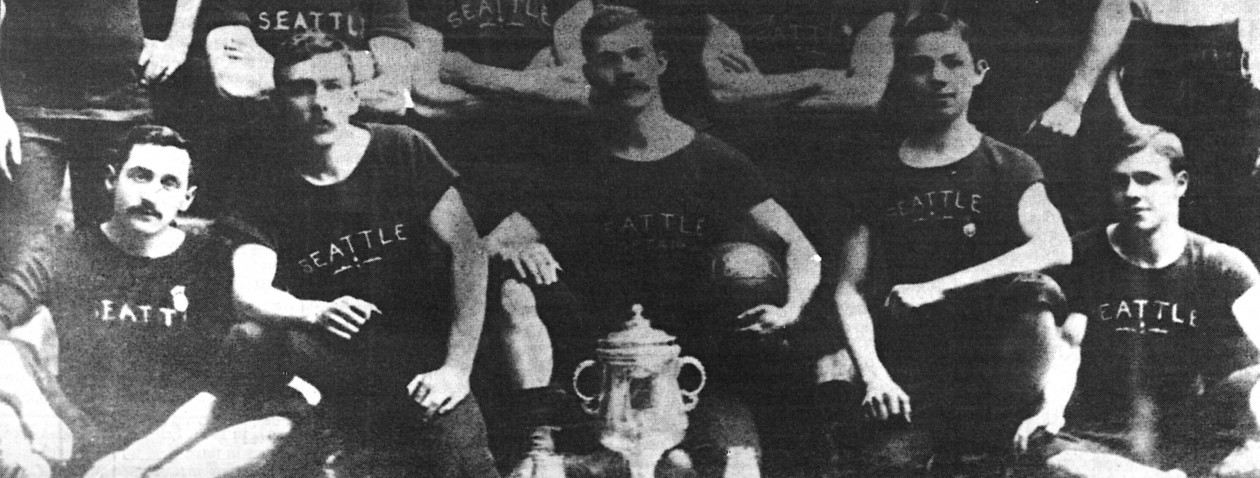On the heels of the improbable second half and 2016 playoff run to an MLS Cup, in the first 18 matches this season Seattle has staged a three-goal comeback in the last 15 minutes versus New England and, earlier this week, come from a man down and a goal down at Portland to earn a dramatic draw at the expense of two points to their most despised rival.

The first two acts are unprecedented. Seattle had never won a top flight championship, let alone after such a disastrous start. The Revs also proved to be a foil for Sounders history.
While Dempsey’s last-gasp equalizer at Providence Park was extraordinary, especially coming in a derby game away, seeing red has never been an automatic death sentence. After all, the same scenario played out at Memorial Stadium 24 hours earlier, with the Reign reeling in full-strength Kansas City.
Chances: Slim and Slimmer
There have been studies completed in the sport’s upper echelons on the likelihood of a side winning shorthanded. One, published by the University of Nottingham in 2015, found that home sides that have a player sent off, average 1.67 points and a 10-man visitor 1.06. Of course, among the key variables is the amount of time spent playing down a man.
Earlier research in the EPL suggests that teams are getting better at playing with a man down. Still, the percentage of teams able to win a match after losing a player from a leading or drawn position descend into the single digits. Faced with doing so on the road, the chances dwindle further. And yet.

Flipping through 40 seasons (43 years) of Seattle teams, some of the most improbable outcomes involving 10v11 occurred away. Two happened in Toronto, the first in 1974.
Sounders Great Escapes
In their inaugural season the Sounders overcame a red card for an 86th-minute winner from Davey Butler. In 2011, following Jhon Kennedy Hurtado’s early exit, Fredy Montero connected on a free kick at the death for a 1-0 smash-and-grab.
Brian Schmetzer could offer up another instance. In 2002, Schmetzer’s rookie season as Sounders coach, A-League Indiana was level with Seattle, 2-2, when Jason Farrell took his second yellow. No matter. Brian Ching came to the rescue, scoring twice in the final 13 minutes for a 4-2 victory.
However, the mother of all 10v11 wins was a year earlier, in 2001. Playing 20, 40 or 50 minutes short in a northern latitude is one thing. But when it’s practically an entire match under a broiling Texas sun, that’s a different matter entirely.
One Harsh Start
On Labor Day weekend, Seattle took flight to El Paso. A boisterous crowd of about 2,500 was on hand for the game and postgame fireworks. Temperatures reached 91 degrees just before kickoff. Shortly thereafter, the Sounders looked like road kill.

In the sixth minute, referee Jesse Johnson, from nearby New Mexico, reached into his pocket, flashing a red to Viet Nguyen for a hard tackle. Nguyen strode to the locker room with Bernie James, his coach, right behind. James was ejected for excessively arguing the call.
Sure enough, soon El Paso went in front, 1-0. At that point, offers O’Brien, a team can either succumb to the inevitable, or choose the alternative.
“When you go down to 10, you get a little bit more focused because you know your chances aren’t going to be as great,” he says. “You’re very focused on the tactical, like where do I need to be. And you have that Alamo effect, where you’re down and against the odds, and you’re working harder for each other.”
Buddy, Can You Spare a Call?
Of course, to come from behind when playing 10 versus 11, a team needs some luck, some favorable calls. In Seattle’s case, they got not one or two. They got three big calls.

“Obviously, the tide changed, because the ref ended up giving us three penalties,” says O’Brien.
“You hardly ever see it; it’s bizarre, a team getting three penalties,” remarks O’Brien. “It was a funny game. You’re down a man on the road, it’s hot, it’s El Paso, and you’re normally not going to get those calls.
“We were defending most of the time and caught them on the break and must’ve got pulled down,” he adds. “But we were in the box for those three, so we must have been getting chances on goal.”
O’Brien took each of the penalties, all within a span of 21 minutes. To this day, when he shares the story, there are disbelievers. But it’s a fact.
“I remember going left (on the first penalty), then right, and saying, ‘Aw, f*** it, just smash it’ (on the third),” grins O’Brien. “It was a head game (with the keeper) at that point.” The Sounders won, 3-2. (The match also featured a fourth penalty; the Patriots converted a consolation spot kick in the 89th minute.)

It remains the only hat trick of penalties in Sounders lore. It’s also the only time Seattle has scored three times with a man disadvantage. It’s a game that often comes to O’Brien’s mind, a tale of redemption, of resilience and rarity.
Rare are the occasions when a side can play shorthanded for 84 minutes and earn a result, never mind a win. “If you’ve got that team spirit, you have that mentality to do it,” maintains O’Brien. “It’s up to the spirit of the group. When your backs are to the wall, you give that little bit extra.”

